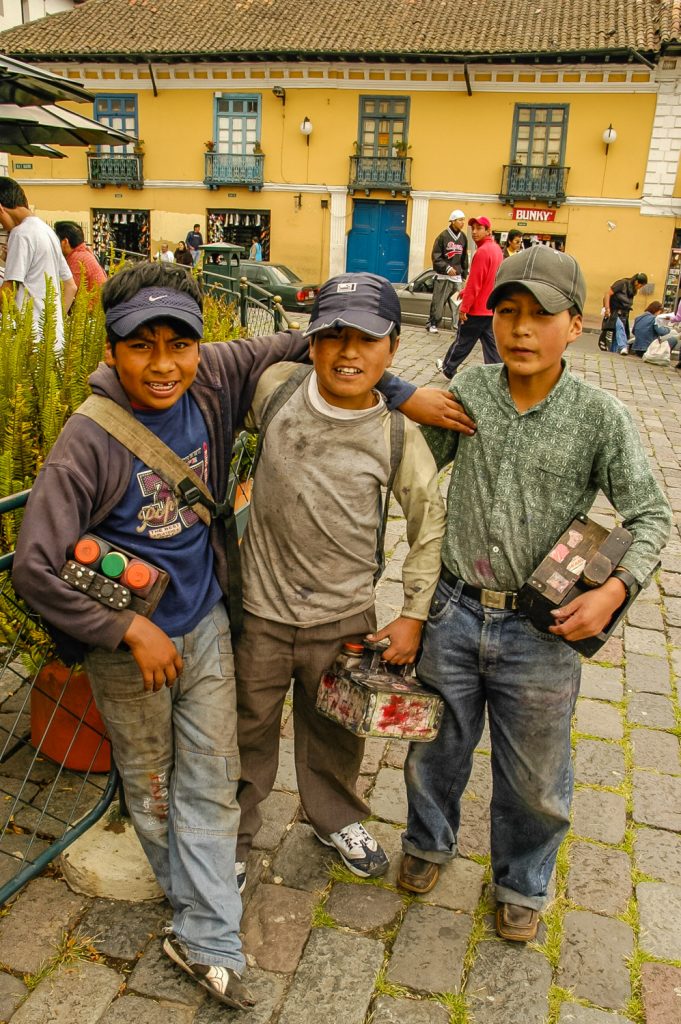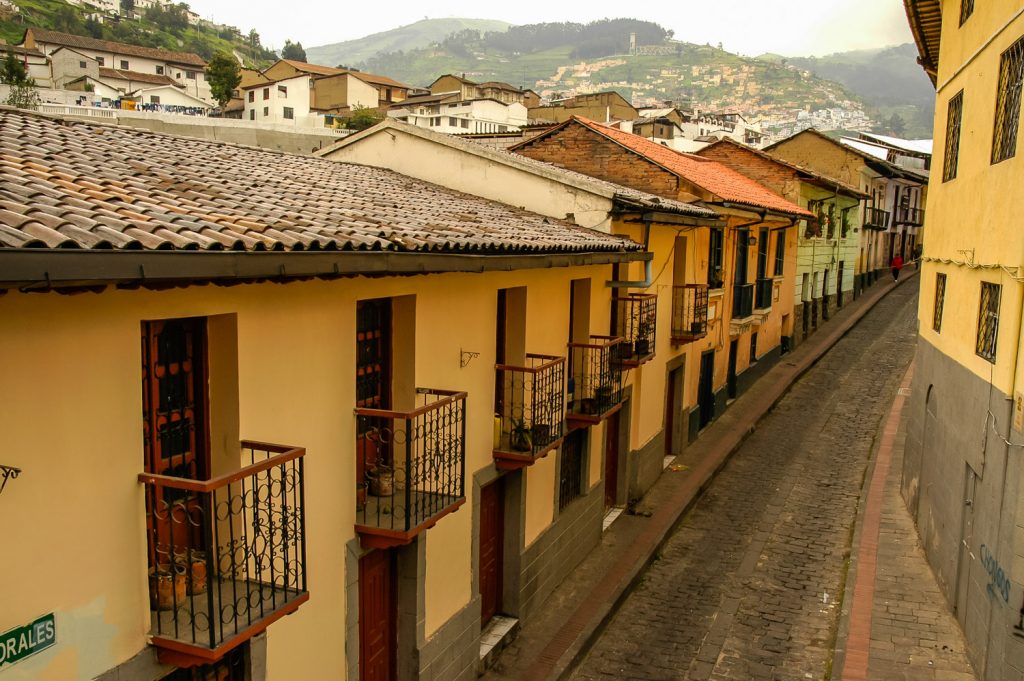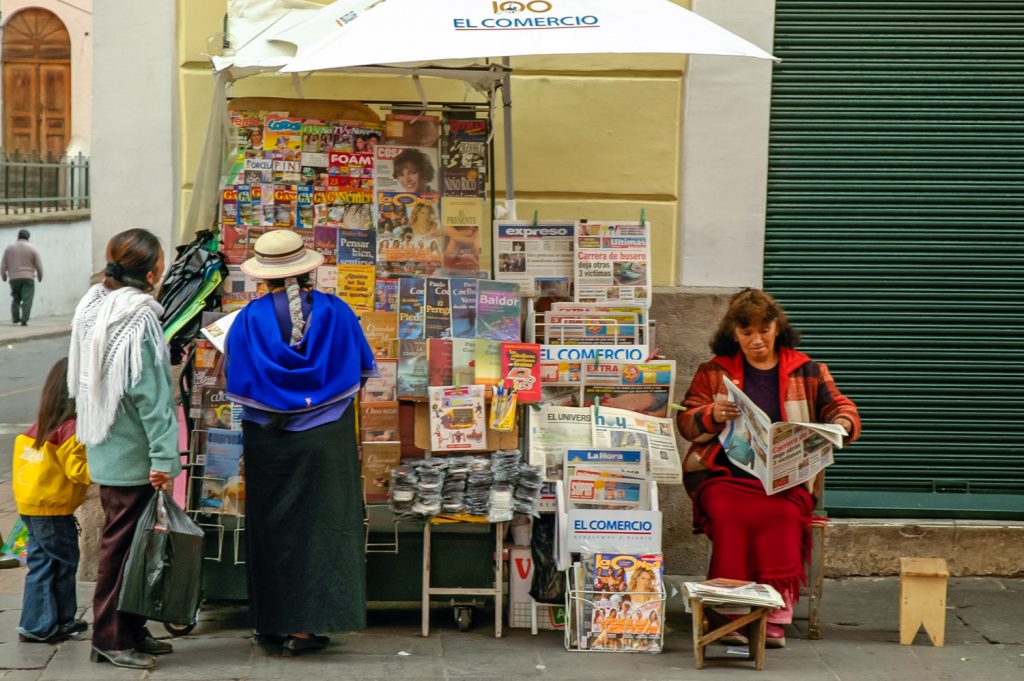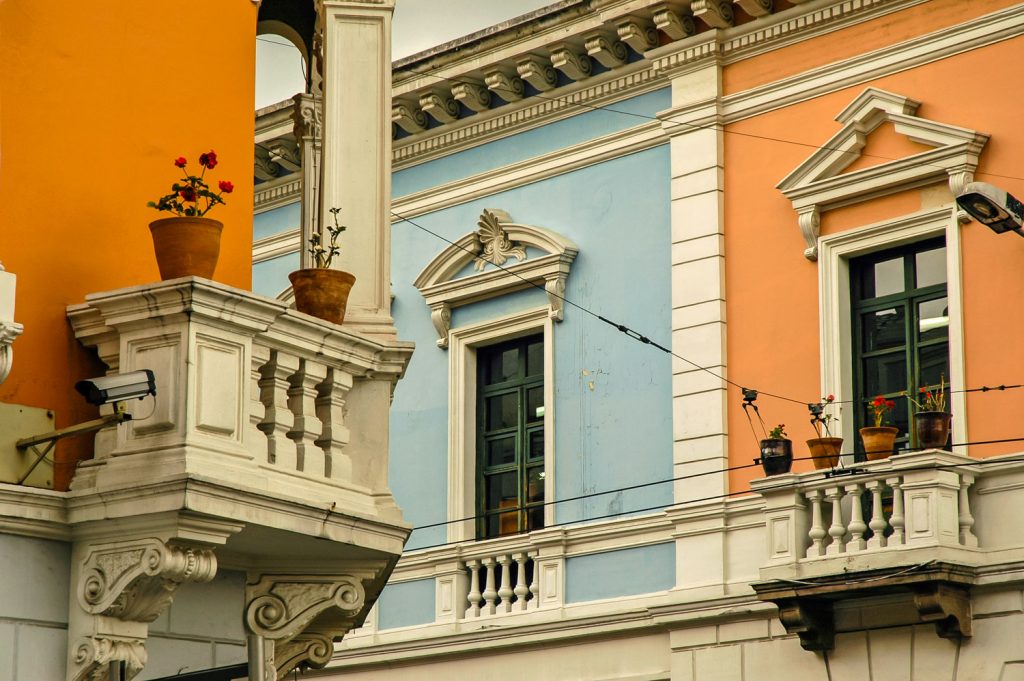
Written: Cuenca, Ecuador
I arrived tonight in Cuenca, Ecuador’s third largest city, and a relatively pleasant colonial town. I plan to use it as my base for the next few days for trips to a national park in the highlands, and to some Inca ruins.
Vilcabamba was a very nice break, and I spent three nights in the little cabin perched on the side of the mountain. I opened my screenless windows wide each morning to look out across the valley at the lush mountains across from me and watch the mist creep up the valley, with only the sound of the raging river and birds.
I took a hike one day up a steep ridge and along the side of a steep mountain, passing through pastures with grazing cattle, horses, and donkeys, and crossing little streams covered in dense tropical vegetation. The rainier season came early to the Vilcabamba area, and periodically downpours force me to take shelter — once in an empty adobe farmhouse. Rain also made the trails pretty muddy.
I had hoped to organize a horse trip into the highlands, but the weather and lack of other visitors to the cabins forced me to scrap that plan. Still, it was a good relaxing time. I spent my last day relaxing in a hammock and reading.
One of the interesting things about travelling is the people you meet. On my last night in Vilcabamba, a couple arrived, and coincidentally they were from Toronto (the only other couple I met there the first night was from the Netherlands). The Toronto couple worked in the film industry, and had a 35-foot sailboat that they were sailing around the world in, returning home periodically to work — planning their trips home to escape the hurricane season in the south and winter in the north. They generate electricity on their boat with solar panels and wind. Why would they need electricity? Although they use a laptop computer, the main reason is to power a fridge and freezer so they can have cold beer and can freeze the many fish they catch. They described catching a six-foot tuna of the kind used to make sushi, but decided it was more than they could handle, so let it go. They figure it would be worth a lot of money in Japan.
The couple who run the cabins, Charlie and Sarah, have two kids who speak English and Spanish interchangeably. They served meals to guests around a big table by a fire in an open shelter. Charlie runs excursions to a refuge up in the mountains on their own private nature preserve, and he considers himself one of the ecotourism pioneers of Vilcabamba. I told them I would highly recommend their cabins to those wanting to get away to nature.










